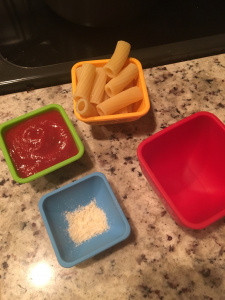Why You Don't Have To Track Calories to Reach Your Nutrition Goals

Its been long referenced in the nutrition space that we are a part of to encourage clients and patients to track their calories particularly when the end goal is weight management. In fact in 2008 a large study out of Kasier Permanente found that participants in a weight loss study lost double what their non-food logging counterparts did. But what if we told you that some newer research suggests that tracking food perfectly 100% of the time isn't required to meet your nutrition goals? Would you find that liberating? If so, you're not alone.
Per this new June 2023 study published in the Obesity Society that included 153 participants tracking what they ate for the purpose of weight loss, clinically significant weight loss was achieved by those who didn't log all of the time. Actually the researchers found that those who tracked even 30% lost 3% of their total body weight. The amount of time they spent logging incrementally increased their weight loss--so those who logged 40% of the time lost 5%, and so on...
So here's the bottom line. When you have a goal of weight loss, discuss with a health professional (namely, your doctor and Registered Dietitian) about realistic weight loss goals for your age, exercise level, medical history and medication regimen. Losing 3% of an initial body weight looks like this: starting weight (200lbs) after 3% weight loss (194lbs). Weight loss is not a one-size-fits-all approach and quite frankly the introduction of semaglutide and other weight loss drugs on the market has strongly underlined the hormonal influence in weight management that must be addressed in adults as well. We would be remiss if we didn't talk about the emotional component of our eating habits. We work with established mental health providers to support our patients in meeting their well-being and health goals.
As a seasoned dietitian certified in adult weight management, I've witnessed how powerful an intentional food log or journal can be when its lead appropriately, monitored routinely and easy to implement in a person's daily routine.
But its important for me to mention that I use food journals and logging for purposes other than weight loss all the time with my patients and for myself.
We focus on areas of the journal that might resonate with that individual's health goals, like:
- carbohydrate counting for blood sugar control for people with pre-diabetes and diabetes
- honoring hunger cues
- monitoring portion control
- fueling sports performance
- ensuring hydration needs are met
- managing bowel habits
- assessing supplement and vitamin needs
If you're interested in keeping a journal, consider how you spend your time eating and what makes the most sense for your lifestyle. For many, pen and paper work. For others, a calendar. Some people like to use phone apps, like our online portal to communicate directly with a dietitian, or a general app that may allow access to food databases and tally up macronutrients and calories eaten.
We welcome your participation in one of our interest groups where accountability is shared amongst a group of individuals with shared health goals. To stay abreast of our groups, individual consults or concierge programs, reach out to us here.

 RSS Feed
RSS Feed